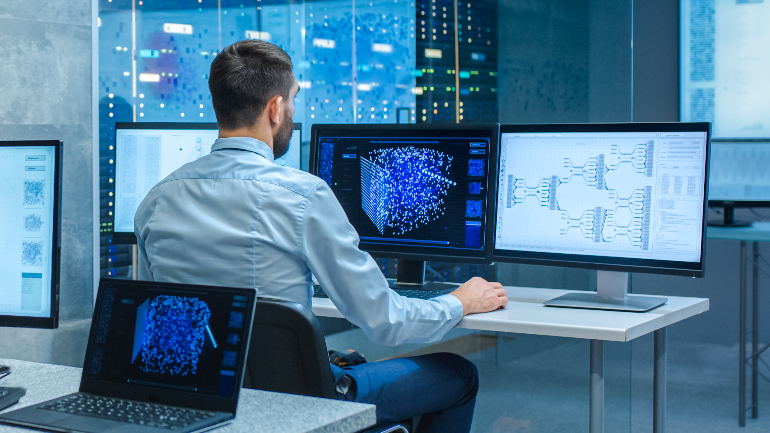
Systems Architecting
Kongsberg - Part time
The role of system architect requires a broad set of skills. This course focuses on the less technical aspects of systems architecting.
-
Closing dates: Expired
Study facts
-
Campus: Kongsberg -
Study level: Further education -
Progression of study: Part time -
Start up: Spring 2025 -
Teaching model: Session-based -
Credits: 0 or 7,5 -
Charge: NOK 20.000/25.000 (without or with credits) -
Closing dates: Expired -
Semesters: 1 -
Teaching Language: English -
Number of students: 25
Dates
- To be announced
Target group
Senior Engineers with experience from system architecting or design.
What is Systems Architecting?
System architects play an integrating role between many specialized engineers and other stakeholders during the creation of new systems. The role of system architect requires a broad set of skills. This course (SESA 6202) focuses at the less technical aspects of systems architecting. The program is based on one of the basic working methods of an architect: viewpoint hopping. The course addresses systems architecting from ten different viewpoints.
During the course we address the following questions:
- How do systems architecting fit in the organization and its processes?
- What are the deliverables, responsibilities, and activities of the system architect?
- How to elicit requirements?
- What methods, tools, and techniques are available for the architect?
- How to anticipate future needs, trends, and changes?
- How to harvest synergy?
- What is the role of software in complex systems?
- How to structure and manage documentation?
- How to present to less technical management teams?
- What human factors impact systems architecting?
- How to apply this material in the own organization, short term, and long term.
Why take Systems Architecting course?
Better understanding of
- How do you cope with conflicting needs, opinions, and interests.
- How do you lead the design team effectively.
- How do you balance innovation and risk mitigation, installed base and new systems, short term, and long term.
- How do you share the vision and make pragmatic choices at the same time.
Who should take this course?
Engineering managers, systems engineers, lead designers, chief engineers, senior engineers, technical directors, and managers.
Instruction
The courses are organized in different ways depending on the duration. When organized as a one-week intensive course, the lectures last from 0840 to 1630 each day. The courses are a mixture of lectures and work in groups. Master students and others taking courses for credit will work on a written assignment that is due 13 weeks after the end of the course. A completed course with an approved written assignment will give 7.5 study points.
Prices
There are different alternatives for attending a course and the price depends on whether you take it for credits or not. To get credits for the course, you need to hand in a written assignment.
- Alternative 1 (spring semester): Attendance only kr. 20.000,-
- Alternative 2 (spring semester): Attendance and written assignment kr. 25.000,-
For alternative 2, the price also includes supervision and grading of the written assignment.
Registration
The registration deadline for each course is 2 weeks before the course starts.
We accept registrations also after the deadline, provided there are available seats. Each course has a limited number of seats, so please sign up early. We reserve the right to cancel courses with too low participation.
Course plan
A course plan will give you a description of the academic content of the course and your learning outcome. You will find reading lists and relevant information on how each course is taught.
Link to the latest published course plan
Admission requirements
A bachelor’s degree in engineering or exact sciences, or similar
A bachelor’s degree in natural science or technology provided that it contains at least 20 ECTS mathematics and/or statistics or physics
A cumulative grade point average of C or above
You must also fulfill the English requirements
The admission requirements are founded on the regulations regarding admission


